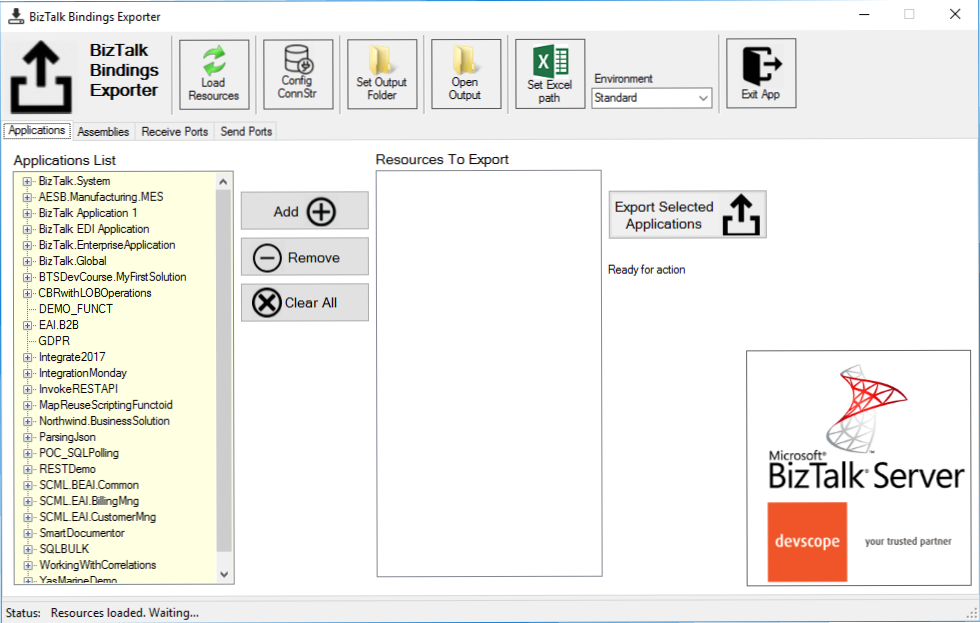
Welcome again to another BizTalk Server Best practices, Tips, and Tricks blog post! In my previous blog posts, I discussed some essential tips and tricks for BizTalk Server administrators:
And for BizTalk Server Developers:
Today I will speak about another critical Best practice, Tips, and Tricks, this time for BizTalk Server administrators: How to export a binding file for a single BizTalk Server Port.

Exporting a BizTalk Server Application binding is, at first sight, a simple and quick task that can be done using the BizTalk Server Administration Console. But even in simple tasks, we may encounter challenges requiring us to perform monotonous and boring manual operations that consume some of our precious time and are always subject to failures.
Unfortunately, out-of-the-box, BizTalk Server doesn’t provide any simple and direct way to export the bindings of a single BizTalk receive or send port, which leaves us with only one option:
Why is this important?
Often during development and even production, especially, for example, in content-based routing scenarios that don’t require orchestrations, we just need to create one or two new ports in our BizTalk Application, and we don’t want to export all the bindings of all ports to deploy to production.
We never know if we will make some mistake and break something that is already running fine in production – at least, I try to avoid this way of deploying artifacts in my applications in production. I prefer only to deploy what is indeed necessary. So, if I created a new receive port and location and a send port with a filter to subscribe to the messages, I only want to deploy these two artifacts!
How can I easily export bindings for a single port or even to a list of ports?
The first alternative that we have to automate these tasks is to use PowerShell, and here you have three samples that I created and shared in GitHub for you to allow to export the bindings:
Of course, you will need then to manually change the bindings in order to modify the following parameters:
Another way, and easier, is to use the BizTalk Binding Exporter Tool that I create and which is also available on GitHub.
BizTalk Binding Exporter Tool is a simple tool that will suppress the absence of advanced binding file generation capabilities in the BizTalk Server Administration Console, allowing you to generate and export a binding file from BizTalk Applications in an intuitive and easy way.

And this tool allows you to generate and export binding files with the following capabilities:
This tool is also available for the following BizTalk Server versions:
Stay tuned for the following BizTalk Server Best practices, Tips, and Tricks.